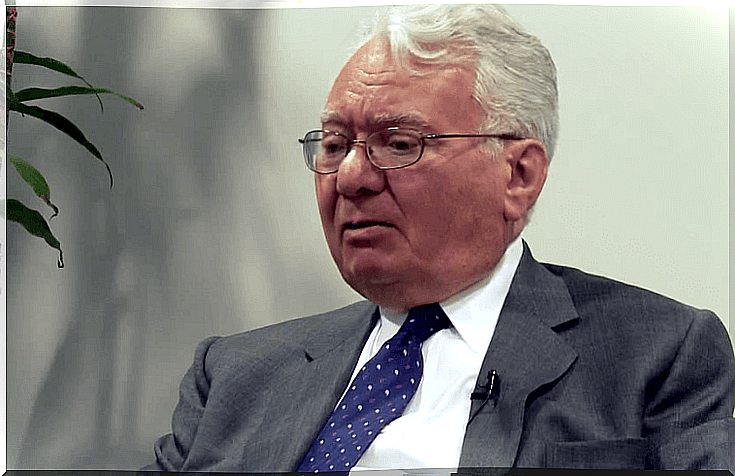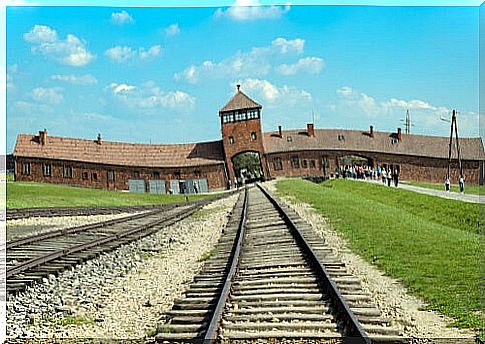Thomas Buergenthal, From Auschwitz Prisoner To International Court Judge

It is always very encouraging to find stories of people who have been victims of great injustices and who, instead of incubating grudges or repeating the abuses to which they were subjected with others, dedicate themselves to building a world in which, hopefully, they will not become to commit such humiliations. That is the case with Thomas Buergenthal.
Thomas Buergenthal did not allow the past to take control of his life. Life wanted him to be in the worst concentration camps organized by Nazism when he was still very young, but he managed to survive and get out of them forever. His spirit was not imprisoned in the memories of an ominous past, but decided to look at the present and think about the future, without letting the past end up trapping him.
Buergenthal decided to do his bit to build a better world, he did so as a lawyer and as a teacher and, later, as a member of the most important international tribunals.
He was a judge of the Inter-American Court of Human Rights for more than 10 years and also of the Truth Commission in El Salvador to later become a judge of the International Court. Faced with injustice, he did not give up and attacked with the courage of the law.

The impressive childhood of Thomas Buergenthal
Thomas Buergenthal was born on May 11, 1934 in Lubochna, which was formerly part of Czechoslovakia and is now part of Slovakia.
His parents had arrived in that town just a year before, just after Hitler came to power and began to implement his persecutory policies against Jews.
Thomas’s father had been a banker in Germany. In Czechoslovakia at that time, he opened a hotel to which many of those persecuted by Hitler went. At that time, the number of Nazi supporters in that nation began to increase and, as a consequence, in 1938, the hotel ended up being closed and confiscated.
The family was forced to move to a town called Zilina. There, they stayed for about a year, living in the midst of limitations and fear. There was an anecdotal fact that later became very important, and that is that Thomas Buergenthal’s mother went to see a fortune teller.
The fortune teller saw that she had a son and told her that he was “a lucky child”, who would manage to get ahead in all the tragedies that were to come. As if it were a paradox, the statement ended up being fulfilled.
The ghetto and concentration camps
At first, everything seemed to indicate that what the fortune teller had predicted was nothing more than a sham, since Thomas Buergenthal was by no means a lucky young man.
His father decided, who knows on the basis of what calculation, to cross the border into Poland. There he managed to obtain the tickets to board a ship that would take them to England. On September 1, 1939 they took a train to go to the port, but just that day the invasion of Poland took place .
The train in which the Buergenthal family was traveling was bombed and they were miraculously saved. Later, they all joined the refugees and there they were taken by the Germans, who confined them in the Kielce ghetto, where they lived for four years under very precarious conditions. They only ate once a day and were often subjected to humiliation. Fear dominated the days, as the Germans went, from time to time, to kill people at random.
In 1944, the family was deported to the Treblinka concentration camp and then to Auschwitz. Very bitter memories of those years remained, but also sublime. Like when an officer tried to rip him out of his father’s hand and he shouted: “Captain, I can work!”, Thereby dissuading him from separating them.

An exemplary survivor
Finally, as used to be the case in concentration camps, the family was separated. The Russians were close by, and in January 1945, what would be called “the great death march” began. The prisoners were forced to evacuate and take long walks. Those who lagged were killed on the spot.
At the end of the war, his mother, encouraged by the fortune teller’s prediction, searched for him and found him. In the end, the prediction came true and Buergenthal was “a lucky boy”; his mother was convinced that he had survived and would find him.
Thomas Buergenthal, along with his mother, moved to the United States after verifying that his father had not run with the same fortune and had died. When Thomas saw the lights of New York, he thought they were crematoria in full swing.
In the United States, he became a lawyer and began a brilliant human rights career. Thanks to the exemplary teachings of his parents during those terrible years, he had in his heart the conviction that human beings are more than victims or victimizers.
Despite his enormous accomplishments and balanced character, he still cannot see the swastika without shuddering. Several books have been written about his extraordinary experience and, without a doubt, he is an example of overcoming the toughest adversity.









